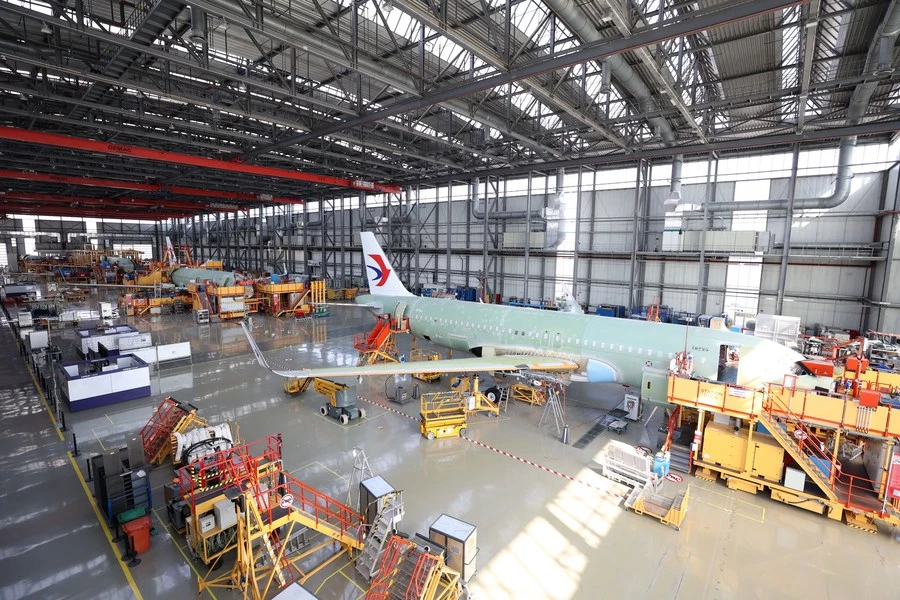BEIJING, July 7 (ABC): Michel Tran Van, chief operating officer (COO) of Airbus China, has expressed optimism about the world’s leading aircraft manufacturer’s great prospects for the Chinese market, despite major epidemic challenges facing the whole aviation industry worldwide.
“We will stay in China. This is a single-country market that is growing the fastest in the long-term,” Tran Van said. “We will continue looking at partnerships for R&D and technologies.”
Tran Van highlighted Airbus’ Asia final assembly line in north China’s Tianjin Municipality (FAL Tianjin), saying that despite the epidemic, “all our factories in China and particularly in Tianjin are operating and operating normally.” “We are delivering aircraft as expected.
The supply chain is feeding this FAL (in Tianjin) as we expected,” he said. “Ultimately, there has been no impact on our worldwide capacity.” According to the COO, FAL Tianjin has a main facility working on single-aisles, the A320 family of Airbus aircraft.
It also has wide-body capabilities for the A330 and the A350 now. The production facility there will conduct the final assembly on the A321 by the end of this year. FAL Tianjin completed and delivered 53 A320 family aircraft in 2021. The European plane-maker inaugurated the A320 family’s final assembly line in Tianjin in 2008.
By the end of 2021, Airbus had assembled and delivered 555 A320 series aircraft from the facility. “Tianjin is our first facility and assembly line outside of Europe. So the FAL in Tianjin is integrated into the overall industrial system of Airbus,” Tran Van said.
“Whatever we invest in Tianjin defines the next steps for the complete supply chain.” Tran Van attributed the smooth and stable operation of FAL Tianjin to the support of local authorities at various levels. “There has been a lot of support provided to the aviation (industry) in general.
We are benefiting from that as well indirectly,” he said. “More directly and more locally, we have also benefited from a lot of support on the simplifications of customs to make it faster, and to accommodate all those uncertainties on the logistics worldwide.”
“I think that we should not be influenced too much by the short-term challenges and difficulties that we see,” Tran Van said. “We see some good recoveries and prospects for the future. It is what we are trying to focus on.”

